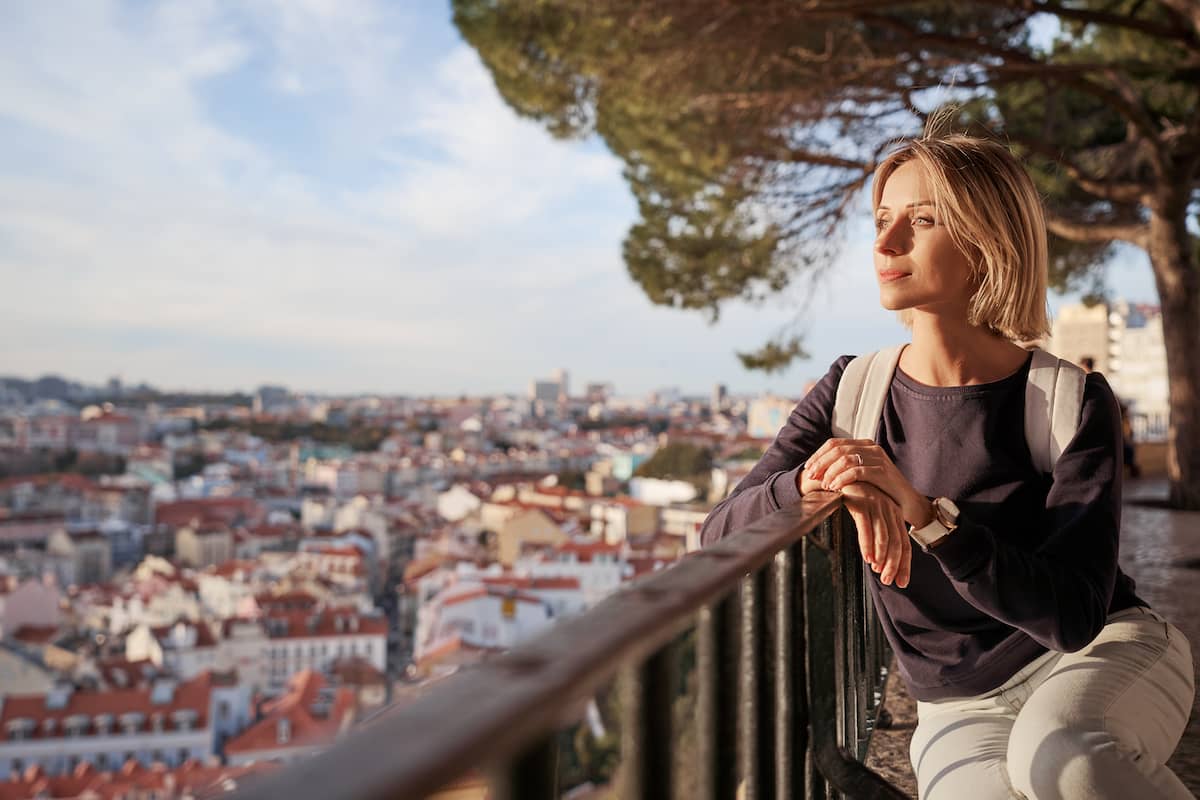Lisbon Travel Tips
Top Tips to Know Before Visiting Lisbon and Portugal
Lisbon has fast become one of Europe’s top destinations, and rightly so. With so much to offer, you’ll want to be sure you’re making the most of your trip to Portugal. Especially for first-time visitors, Lisbon’s bustling streets can be intimidating, and you’ll want to avoid any unwanted surprises. This guide will get you acquainted with the ins and outs of travel to Portugal, from public transportation to pickpockets to the best Portuguese pastries.
Bring Comfortable Shoes
Lisbon is an extremely walkable city, and one of the great experiences is wandering the colorful streets and alleyways. Because of that, you’ll want to be sure to bring a pair of comfortable shoes. You don’t want your exploration of this beautiful city to be marred by achy feet. In addition, Lisbon’s streets are quite hilly, with many cobblestone sidewalks. Make sure your shoes are sturdy enough to last the trip.
Make Sure to Pay Your Fare
If you decide to opt for public transportation, be prepared for a slightly different system than is common in the US or UK. On some trams and buses you can buy a ticket on board, but on others you’ll need to purchase a ticket from a machine near the station. If you get on a tram or bus without a valid ticket, you risk being caught and could pay a fine up to €350. Random ticket checks are quite common, so if you’re unsure of how to pay, just ask the driver.
Watch out for Pickpockets
Lisbon and other Portuguese cities are enjoying a tourism boom, and an increase in tourists is unfortunately accompanied by an increase in pickpockets. Like in any major city, you’ll want to keep your belongings close, especially your phone or wallet. It can help to wear a cross-body bag instead of a backpack or purse, and to carry bags that are zippered or otherwise hard to open. Pickpocketing happens most in crowded touristy areas or on public transportation, so pay extra attention there. If you’re worried about any valuables getting stolen, it’s best just to leave them at home.
Compare Average Prices
Along with pickpocketing, the influx of tourists has created a number of tourist traps. Remember that Portugal is a relatively budget-friendly destination, so if a store or restaurant seems a little pricey, check the prices of similar locations in the area. Another red flag is if these expensive locations also claim to have “original” or “authentic” Portuguese goods. The best way to avoid overpricing is to explore the area and note the average price.
Carry Cash
Businesses have to pay fees for cashing credit cards, so many smaller local restaurants and stores are cash-only. Luckily, ATMs are bountiful in Portugal, so you shouldn’t have any problem getting cash. Most ATMs don’t charge any withdrawal fees (although your bank might), so you can withdraw cash frequently without worrying about carrying too much at one time.
Watch Your Appetizers
At many Portuguese restaurants, your server will start by bringing out several plates of appetizers, called “entradas”. Usually, you’ll be served bread, olives and other small dishes. While they may look delicious, these dishes are not free. If you eat the entradas, you will be charged at the end of the night, but if you let them be, you’ll only be charged for the food you order. Make sure to check your bill to make sure the waiter calculated correctly before you pay.
Try the Specialties
While you’re eating out, be sure to try some Portuguese specialties. Portugal has some of Europe’s best seafood, especially in cities close to the ocean, like Lisbon or Porto. While Portuguese fish is amazing served in any way, some of the best dishes are caldeirada (seafood stew), cataplana (a type of variety plate), and bacalhau (salted cod which can be served in a variety of ways).
If you’re looking for something a little sweeter, Portuguese pastries are to die for. Of course, you can’t leave Lisbon without trying pastel de nata and pastel de Belém, the famous Portuguese egg custard tarts. You should also keep an eye out for queijada (cheese tarts), filhós (fried dough), and bolas de Berlim (Portuguese donuts).
Learn the Coffee Lingo
Portugal is also a paradise for coffee lovers, but you’ll want to brush up on some vocabulary before going to order. For a simple espresso, order a café. If you’d like your espresso with a lot of water, that’s called a carioca. You can also get half-coffee and half-milk by ordering a meia de leite, or a latte by ordering a galão. No matter what you order, you’ll have an amazing cup of coffee to start your day.
Learn some Portuguese
While you’re studying for your order of coffee, take some time to brush up on a few words of Portuguese. While most people in major cities do speak English, don’t take it for granted. Not everyone will be able to converse easily with you in English, and locals really appreciate it when tourists take the time to learn some Portuguese. For starters, hello is “olá”, and goodbye is “tchau”. For please and thank you, say “por favor” and “obrigado” (for men) / “obrigada” (for women).
Explore Further Afield
Learning some Portuguese will especially come in handy if you decide to get off the tourist track. Many tourists just come to visit the major hubs like Lisbon, Porto and the Algarve, but there is plenty more to explore. It’s easy to rent a car to get out of the city, and create your own itinerary. Near Lisbon, some great day trips are the breathtaking monastery in Batalha, the massive palace in Mafra, and the charming little village of Óbidos. Further afield, you can check out Peneda-Gerês National Park in the north, or the villages of Alentejo in the southwest. If you want to get way out there, you can even head into the Atlantic and visit the Azores or Madeira. These windswept volcanic islands offer completely different adventures than the mainland, but still carry that quintessentially Portuguese atmosphere.

